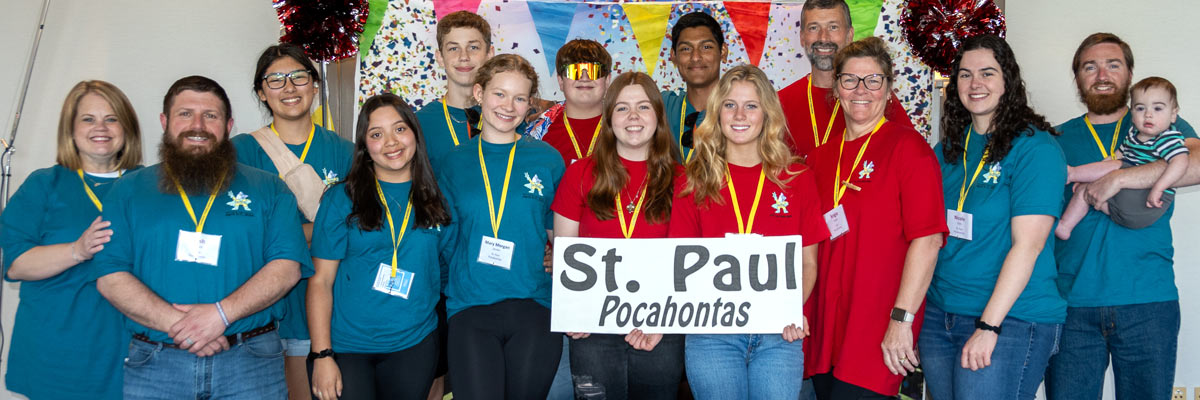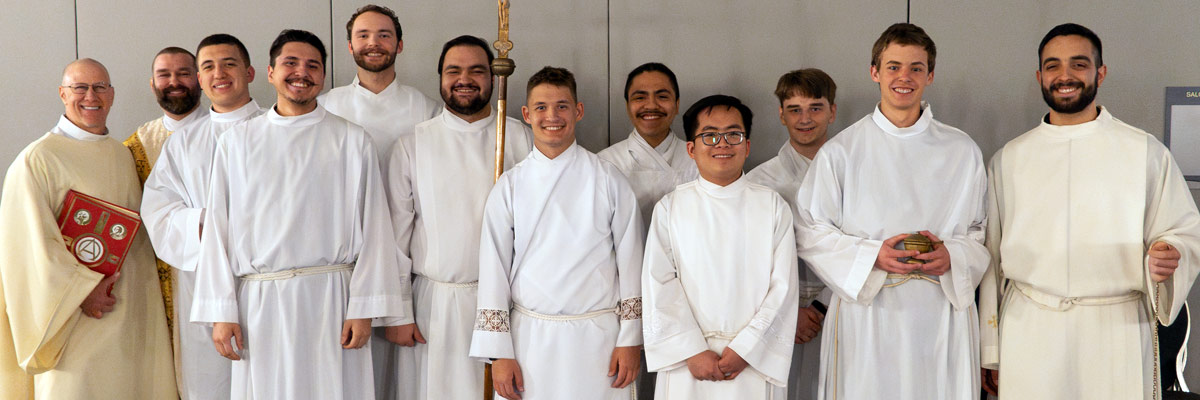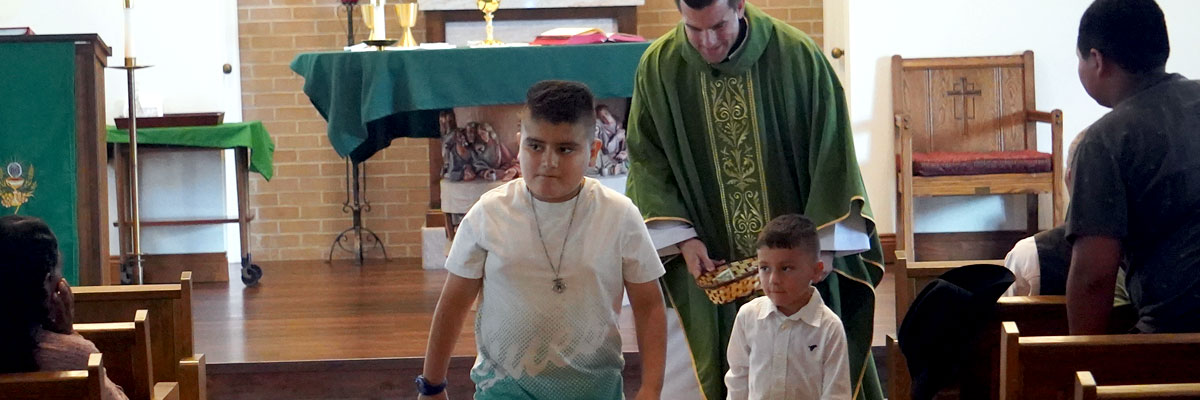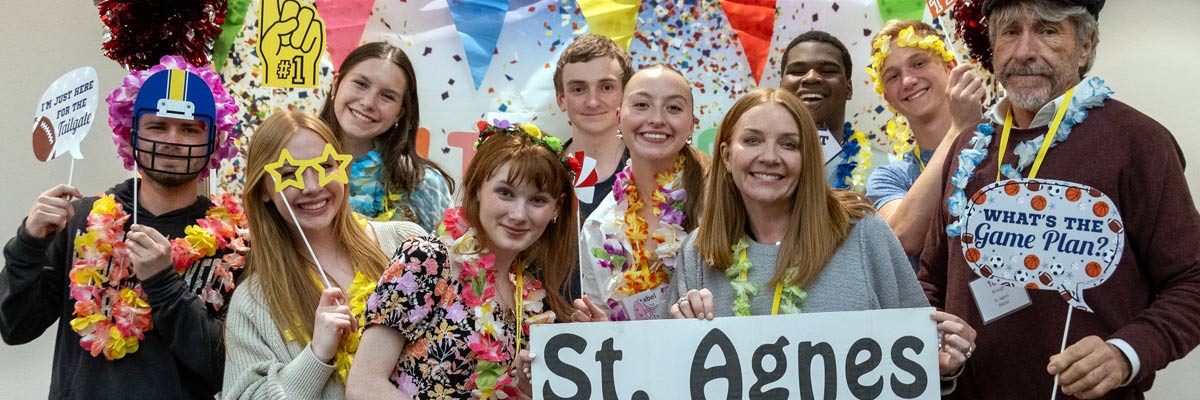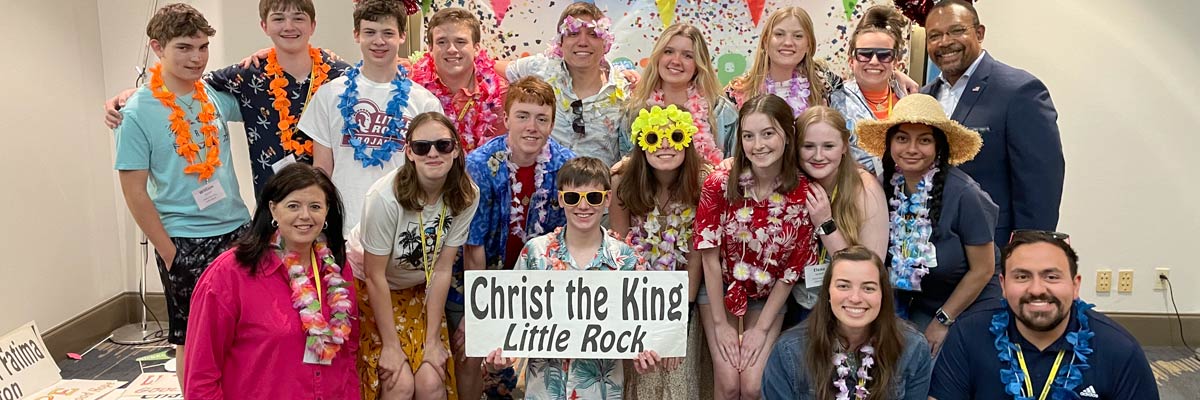Official Website of the
Catholic Diocese of Little Rock
15th Sunday in Ordinary Time, Year C
Published: July 10, 2016
Bishop Anthony B. Taylor preached the following homily at the Cathedral of St. Andrew in Little Rock on Saturday, July 9, 2016, and Christ the King Church in Little Rock and St. Mary Church in Arkadelphia on Sunday, July 10, 2016.

Bishop Taylor
In the violent events of this past week, and in the divisive rhetoric of some in the public square, we see the consequences of injustice and just how deep our nation's racial wounds remain. Five innocent policemen were murdered and nine others were wounded in Dallas following a peaceful protest of the unjustified killings of African Americans by police officers.
There is a widespread perception of a pattern of mistreatment of innocent African Americans by some police officers in some jurisdictions, yet the police officers I know, including my own nephew, really do strive to treat everyone fairly. And so we fear for their safety and for the safety of African Americans in their dealings with the police.
How can we heal this wound? Nothing will really change until we as a nation begin to see each other as true brothers and sisters, which is the main point of Jesus' parable of the Good Samaritan in today's Gospel. We can pass all the anti-discrimination laws we want, but until we have a change of heart, our nation's wound will not be healed.
How can we heal this wound? Nothing will really change until we as a nation begin to see each other as true brothers and sisters, which is the main point of Jesus' parable of the Good Samaritan in today's Gospel. We can pass all the anti-discrimination laws we want, but until we have a change of heart, our nation's wound will not be healed.
When preparing for my first confession, I was taught that we should live according to the Ten Commandments and the eight Beatitudes, but then I discovered a problem: You can comply with commandments and laws without having a change of heart, but you can't obey a beatitude because the Beatitudes do not tell us what to do, they tell us how our heart should be; what attitudes we should have — poor in spirit, humble, merciful, pure, peaceful, courageous.
Naturally these attitudes produce actions and lead to results — holiness in this life and a big reward in heaven. But how do we become that kind of person? We can change our external behavior in order to obey a commandment but how do we change our hearts, our inner attitudes to become a different person on the inside?
Jesus gives two answers to this question: The Old Testament answer, which is good, and then later his new answer that is even better. In today's Gospel he gives us the Old Testament answer: There are two great commandments that contain the other 10. If we love God with all our heart, mind, soul and strength, we will keep holy the Lord's day and not have any false gods or take God's name in vain.
And if we love our neighbor as ourself, we will not kill, steal, lie, covet, etc. And since love is an inner attitude, love of God and neighbor will produce good deeds that go way beyond those listed in the Ten Commandments, as we see in Jesus' parable of the Good Samaritan — a man who bridges an ethnic divide in order to help a brother in need.
Just before his death, Jesus will replace the two great commandments of the Old Testament with his new and far greater great commandment of the New Testament: That now we love one another as he has loved us.
Not just loving our neighbor as much as we love ourselves, which in some cases may not be very much. Now we are to love others as Jesus loves them, meaning that we are to give our lives for them just as Jesus has given his life for us.
It's only when we begin to risk loving like Jesus loves that we truly start to live the Beatitudes, because the inner content of the Beatitudes is sacrificial love — death to self, setting aside our fears, leaving our comfort zone, for the benefit of others. Indeed, it's also only then that we begin truly to love God with all our heart, mind, soul and strength, and our neighbor as ourself.
Who was a true neighbor to the man who was mugged on the road from Jericho to Jerusalem? The Samaritan: The one who treated him with mercy. And then Jesus says: Go and do likewise.
Reach out to others across all our ethnic divides and your inner attitudes will begin to change. Set aside your fears and you'll become a different — and much happier and freer — person on the inside.


